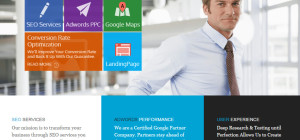 Search Engine Optimization (SEO) is crucial in generating traffic, advertising, and promoting your services for any business with a website and an online presence. SEO is so important that businesses hire SEO experts because they are aware of the very niche techniques required for your website to rank on the first page of the search results of Google. But even the most skilled people can make mistakes.
Search Engine Optimization (SEO) is crucial in generating traffic, advertising, and promoting your services for any business with a website and an online presence. SEO is so important that businesses hire SEO experts because they are aware of the very niche techniques required for your website to rank on the first page of the search results of Google. But even the most skilled people can make mistakes.
On-page SEO involves working with the features of the page or the code of the page itself. On-page and Off-page SEO are both essential, but most of the work is usually concentrated on On-page SEO.
There are some glaring on-page mistakes even experienced SEO professionals can make. Some mistakes won’t harm your website much and, at worst, will rank your website lower than others. On the other hand, some mistakes can downright destroy your website.
If you are a business owner or have hired some SEO agencies, is your SEO team doing it correctly? Are you sure that they aren’t making these mistakes?
Here is a list of the worst on-page SEO mistakes which can be detrimental to your progress.
1. Keyword Stuffing
By far the worst SEO mistake, let alone an error for on-page optimization, is when you stuff keywords just for the sake of having them there while not being too related to the content or context at all. This is a black hat practice, and Google will severely punish your website if it’s caught doing it.
In the worst case, Google can even ban your website from search results. So never use keywords mindlessly because search engines can penalize your for it, and because stuffed keywords create very readable content.
2. Paid Backlinks
Another seemingly permissible, yet black hat, practice is that of buying backlinks. Backlinks are important for SEO. But there have been some web owners that charge SEO agencies to host their clients’ content with backlinks that pointed to the clients’ websites. Once Google found out about these shady websites, many were penalized with reduced rankings.
Many were even blacklisted from ever being on Google search ever again. If you’re hosting a web page, never have a paid on-page backlink.
3. Not Focusing Enough On Content
Being focused on SEO is one thing, but neglecting content is another. Many SEO professionals believe that SEO can work regardless of content. The truth is that SEO can’t work if the content isn’t great. Content is not only about keywords. Your main aim should be to create unique and engaging content.
4. Quantity Driven SEO
There is a common misconception that SEO is driven by the quantity of the right keywords. Playing around with keywords might rank your site a little higher than before, but it will hardly create enough audience retention or conversions through your page.
Quality content delivered with consistency drives SEO. The user wants value from your content. On top of that, you also want content that can comply with analytics and best practices, and rules of SEO.
5. Duplicated Content
Search engines, especially Google, punishes duplicated content. Even if it’s your own unique content from your own website, you shouldn’t copy and paste it into other pages. In addition, on-page optimization demands that no two pages are alike. If Google sees that search results appear similarly on two different pages, they can heavily penalize your site.
Plagiarism is a must-avoid practice already. If you know about plagiarism, you should also know that duplicated content can be equally as bad.
6. Unstructured URLS
Usually overlooked by many, but websites whose URLs include haphazard strings of alphanumeric data don’t rank well. A lack of targeted keywords also harms SEO. Some people prefer using capitals in their URLs but they only complicate the search engine results.
7. Traffic Only Optimization
While SEO drives traffic to your page, traffic isn’t a good indicator if it doesn’t translate to sales. Therefore, SEO has to be focused mainly on conversions into leads and sales, and not just traffic. This could happen when keywords and content aren’t well-researched.
Another reason why traffic is overly focused is when analytics are not used to understand conversions. There are pages that perform well in terms of conversions, but their traffic is lower, which still means a business’s success.
8. Poorly Written Image Tags
Images are unrecognized by the search engines if you don’t use image tags. Therefore, the use of alt tags and alt text is vital. Your page may have stunning visuals or images that you spent on, but not using image tags means that the image wasn’t used to drive traffic to your page.
Images should have tags that include descriptions and keywords. Another mistake that people make because knowing alt text is that they think it would be acceptable to stuff keywords here. As mentioned earlier, keyword stuffing is bad, and it’s similarly bad here.
9. Not Optimizing Your Pages For Mobile
Your website and all its pages might have been made by someone skilled on a computer, and they might have made it suitable that it works best on the web. Today’s reality is that most search traffic from Google comes from phones (nearly 60%). Your pages seem user-friendly, but not being mobile-friendly will not retain traffic for long.
10. Unfitting Anchor Text
Linking to other pages is fine as long as they comply with the rules. The most untapped potential is usually seen from anchor text that hasn’t been utilized appropriately for linking. A generic yet antiquated practice is the use of “Click here” texts and buttons. Anchor texts should contain keywords that could improve website ranking.







